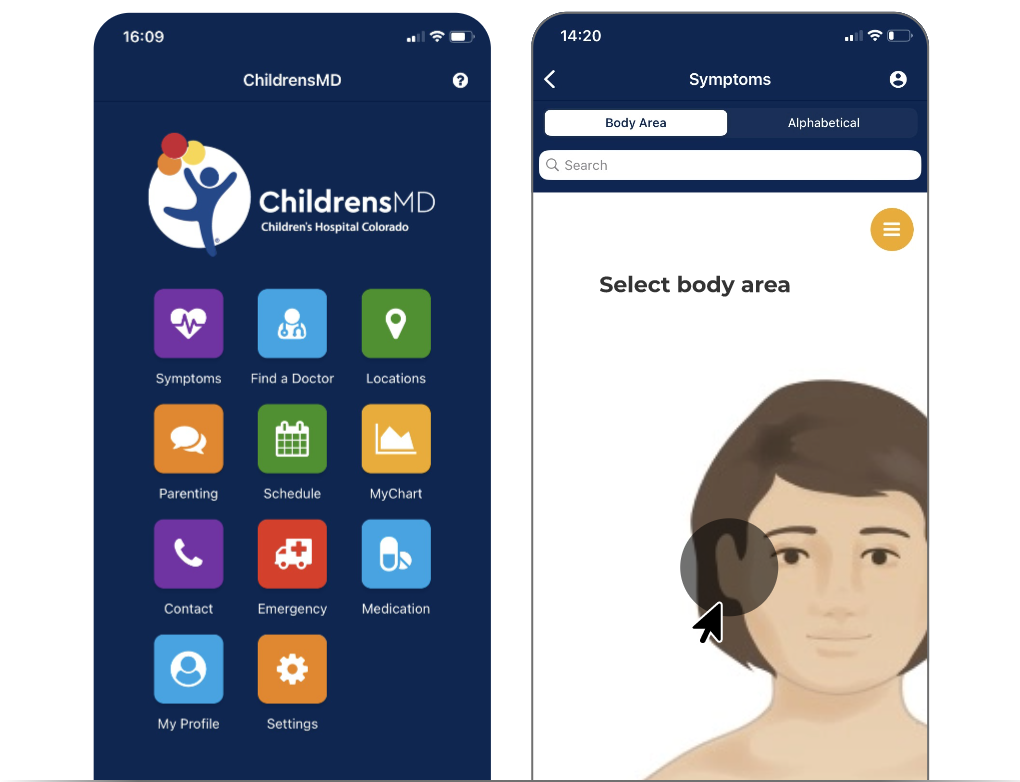- Doctors & Departments
-
Conditions & Advice
- Overview
- Conditions and Symptoms
- Symptom Checker
- Parent Resources
- The Connection Journey
- Calm A Crying Baby
- Sports Articles
- Dosage Tables
- Baby Guide
-
Your Visit
- Overview
- Prepare for Your Visit
- Your Overnight Stay
- Send a Cheer Card
- Family and Patient Resources
- Patient Cost Estimate
- Insurance and Financial Resources
- Online Bill Pay
- Medical Records
- Policies and Procedures
- We Ask Because We Care
Click to find the locations nearest youFind locations by region
See all locations -
Community
- Overview
- Addressing the Youth Mental Health Crisis
- Calendar of Events
- Child Health Advocacy
- Community Health
- Community Partners
- Corporate Relations
- Global Health
- Patient Advocacy
- Patient Stories
- Pediatric Affiliations
- Support Children’s Colorado
- Specialty Outreach Clinics
Your Support Matters
Upcoming Events
Digging Into Invasive Group A Strep
Tuesday, April 30, 2024Pediatric infectious disease experts will share best practices for...
-
Research & Innovation
- Overview
- Pediatric Clinical Trials
- Q: Pediatric Health Advances
- Discoveries and Milestones
- Training and Internships
- Academic Affiliation
- Investigator Resources
- Funding Opportunities
- Center For Innovation
- Support Our Research
- Research Areas

It starts with a Q:
For the latest cutting-edge research, innovative collaborations and remarkable discoveries in child health, read stories from across all our areas of study in Q: Advances and Answers in Pediatric Health.


Nose Allergy (Hay Fever)
Get Care Now
From emergency to urgent care to 24/7 pediatric advice, we’re here to help in the heat of moment.
- An allergic reaction of the nose, usually from pollen
- An itchy nose, clear discharge and sneezing is common
Triggers of Nasal Allergies
- Cause. An allergic reaction of the nose and sinuses to an inhaled substance. The medical name for this is allergic rhinitis. The allergic substance is called an allergen.
- Most allergens float in the air. That's how they get in the nose. Here are the common ones:
- Pollens. Trees, grass, weeds and molds are the most common pollens. Tree pollens come in the spring. Grass pollens come in the summer. Weed pollens come in the fall. Pollens cause seasonal allergies. You can't avoid pollens because they are in the air. Most nasal allergies continue through the pollen season. They can last 4 to 8 weeks. Pollens cause seasonal allergic rhinitis. This is also called hay fever.
- Pets. Allergens can also be from cats, dogs, horses, rabbits and other animals. Most people don't keep a pet that they are allergic to. They only have sporadic allergy symptoms when they are exposed to that specific animal. These symptoms will usually last a few hours. If someone with a cat visits you, they will bring cat dander with them. This will cause brief symptoms. If you own the pet, though, your child will have symptoms all the time.
- House Dust contains many allergens. It always contains dust mites. If your humidity is high, it will contain mold. House dust causes year round, daily symptoms. The medical name for this is perennial allergic rhinitis.
Symptoms of Nasal Allergies
- Clear nasal discharge with sneezing, sniffing, and itching of nose (100%)
- Eye allergies (itchy, red, watery and puffy) also can occur (70%)
- Ear and sinus congestion or fullness can occur
- Throat can also feel scratchy or have a tickly feeling at times
- Itchy ear canals, itchy skin or hoarse voice sometimes also occur
- Symptoms happen during pollen season
- Same symptoms during the same month of the last year
- Past diagnosis by a doctor is helpful
- No fever
How to Tell Seasonal Nasal Allergies from the Common Cold
- Symptoms happen during pollen season
- Had the same symptoms during the same month last year
- Hay fever symptoms last 6-8 weeks for each pollen. (Colds last 1-3 weeks).
- Allergies: itchy eyes and nose. Not seen with colds.
- Colds: fever and/or sore throat. Not seen with allergies
- Both: runny nose and watery eyes. Can also have a cough with both, but less common with allergies.
Nose and Eye Allergies: Age of Onset
- Seasonal pollen allergies usually begin at age 2 to 5 years.
- The symptoms peak in school age children, teens and young adults.
- Pollen symptoms are rare in children under age 2. They require at least 2 seasons of exposure to the pollen.
- Children under age 2 who have chronic nasal symptoms have other causes. Examples are recurrent colds, large adenoids or cow's milk allergy.
- Food allergies can start during the first year of life, but not pollen allergies.
Contact Doctor Within 24 Hours
- You think your child needs to be seen
- Lots of coughing
- Sinus pain (not just congestion) does not go away with allergy medicines. Note: sinus pain is around the cheekbone or eyes.
Contact Doctor During Office Hours
- Hay fever symptoms make it hard to go to school or do normal activities. Note: taking allergy medicine for 2 days has not helped.
- Diagnosis of hay fever has never been made by a doctor
- Year-round symptoms of nasal allergies
- Snoring is a frequent problem
- You have other questions or concerns
Self Care at Home
- Nasal allergy symptoms or hay fever
Care Advice for Nose Allergies or Hay Fever
What You Should Know About Nose Allergies or Hay Fever:
- Hay fever is very common. It happens in about 15% of children.
- Nose and eye symptoms can be controlled by giving allergy medicines.
- Pollens are in the air every day during pollen season. So, allergy meds must be given daily. They need to be used for 2 months or longer during pollen season.
- Here is some care advice that should help.
Allergy Medicines:
- Allergy medicines are called antihistamines. They are the drug of choice for nasal allergies.
- They will help control the symptoms. These include a runny nose, nasal itching and sneezing.
- The key to control is to give allergy meds every day during pollen season.
Long-Acting Allergy Medicines:
- Long-acting allergy medicines (such as Zyrtec) are best for nasal allergies. No prescription is needed. Age limit: 6 months and older.
- Zyrtec dosing for 6 months to 2 years: 2.5 mL (2.5 mg) every 24 hours.
- Zyrtec dosing for 2 years and older: follow package directions.
- Advantage: causes less sedation than older allergy meds such as Benadryl. It is also long-acting and last up to 24 hours.
- Downside: sometimes will have breakthrough symptoms before 24 hours. If that happens, you can give a single dose of Benadryl.
- Cost: ask the pharmacist for a store brand. Reason: costs less than the brand name products.
Nasal Saline to Wash Out Pollen:
- Use saline (salt water) nose drops or spray (such as store brand). This helps to wash out pollen or to loosen up dried mucus. If you don't have saline, you can use a few drops of water. Use bottled water, distilled water or boiled tap water. Teens can just splash a little water in the nose and then blow.
- Step 1: put 3 drops in each nostril.
- Step 2: blow each nostril out while closing off the other nostril. Then, do the other side.
- Step 3: repeat nose drops and blowing until the discharge is clear.
- How often: do nasal saline rinses when your child can't breathe through the nose. Also, do them if the nose is very itchy.
- Saline nose drops or spray can be bought in any drugstore. No prescription is needed.
- Other option: use a warm shower to loosen mucus. Breathe in the moist air, then blow each nostril.
Eye Allergy Treatment:
- For eye symptoms, wash off the face and eyelids. This will remove pollen or any other allergic substances.
- Then put a cold wet washcloth on the eyes.
- Most often, an allergy medicine given by mouth will help the eye symptoms. Sometimes, eye drops are also needed. (see next 2 topics below)
Antihistamine Eye Drops - Ketotifen (1st Choice) for Eye Allergy Symptoms:
- Ketotifen eye drops (such as Zaditor) are a safe and effective product. No prescription is needed.
- Dose: 1 drop every 12 hours.
- For severe allergies, use ketotifen eyedrops every day during pollen season. This will give the best control.
Antihistamine/Vasoconstrictive Eye Drops (2nd Choice) for Eye Allergy Symptoms:
- Ask your pharmacist to suggest a brand (such as Visine-A). The A stands for antihistamine. No prescription is needed.
- Dose: 1 drop every 8 hours
- Do not use for over 5 days. Reason: will cause red eyes from rebound effect.
- Downside: doesn't work as well as Ketotifen eye drops.
Wash Pollen Off Body:
- Remove pollen from the hair and skin with shampoo and a shower. This is especially important before bedtime.
What to Expect:
- Since pollen allergies recur each year, learn to control the symptoms.
Pollen - How to Reduce the Pollen Your Child Breathes:
- Pollen is carried in the air.
- Keep windows closed in the home, at least in your child's bedroom.
- Keep windows closed in car. Turn the air conditioner on recirculate.
- Avoid window fans or attic fans. They pull in pollen.
- Try to stay indoors on windy days. Reason: the pollen count is much higher when it's dry and windy.
- Avoid playing with the outdoor dog. Reason: pollen collects in the fur.
- Pollen Count: you can get your daily pollen count from Pollen.com. Just type in your zip code.
Call Your Doctor If:
- Symptoms are not better in 2 days after starting allergy medicine
- You think your child needs to be seen
- Your child becomes worse
Copyright 2000-2024. Schmitt Pediatric Guidelines LLC.
Disclaimer: this health information is for educational purposes only. You, the reader, assume full responsibility for how you choose to use it.

Get to know our pediatric experts.

Pia Hauk, MD
Allergy & Immunology


Jane Robinson, PhD
Patient ratings and reviews are not available Why?

Kirstin Carel, MD
Allergy & Immunology, Pediatrics



 720-777-0123
720-777-0123





